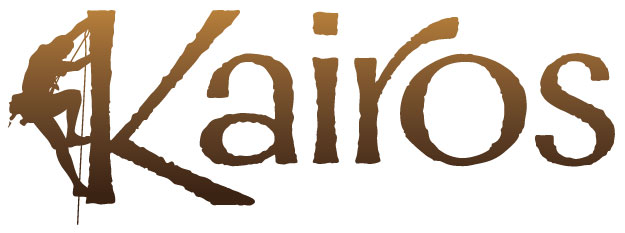
Of all the memorable things we do at Kairos, one of my favorites is taking families rappelling. While I have had great experiences on a ropes course and doing initiative games, there is something about the realism of doing a rappel. It feels less contrived and more authentic. At our last family workshop, the rappel that we took the families on was not set up for therapy but by climbers for the sport of rappelling.
With the experience of the rappel, am always surprised by the participation we are able to elicit. Looking back on all of our workshops we seem to have about 95% of participants do the actual rappel and 100% of participants who are involved in the experience by providing the belay for those rappelling as well as in the processing of the experience.
Regardless of age, weight, or ability of the participants we are able to provide an interactive and positive experience.
We just finished our December family relationship workshop and I am feeling positive about the experiences we had as a group. I want to express appreciation to all the staff for their hard work and effort in putting on the event but I especially want to acknowledge the students and parents for being open to looking at things in a new way, having the courage to face the variety of challenges and obstacles they are facing, and for making course corrections and being willing to learn from their mistakes. I felt good about the weekend and appreciate the positive feedback that many of the families provided.
By far my favorite part of the weekend was the rappel. For years, as I have taken students rappelling it has been something I enjoy but watching the students do the rappel with their parents is way cooler, especially when it is completely out of character for them. Often during the phone calls in the weeks preceding the event, parents begin to express their anxieties. While we always assure them that they do not have to participate in the rappel most of them do despite their fears and hesitations. I am always wowed by those who face this and also am aware that for some people it is healthier both physically and emotionally to participate by supporting others on belay.
So what makes us so successful in eliciting this participation?
Our staff who facilitate the rappel do a great job to not only ensure we are doing it as safely as possible, managing any hazard that can be managed in nature, to educate the participates about the risks, but also in teaching the participates how to engage in the activity safely. It is important that those doing the rappel not only be safe but feel safe. Taking healthy risks is encouraged; we know that growth only occurs when we challenge ourselves. We recognize that many of the participants have some anxiety about the activity yet as we, staff and participants, create an environment where people are supportive and nonjudgmental of those who have fears or resistance it opens up many to the challenge of the rappel. The group this month did a great job ensuring that everyone felt emotionally safe. While much of the rappel is done individually as they face their fears and lower themselves down the rock, others also play a role in providing backup safety and support. One of the things that made this month’s rappel successful was that provided a great example that while individual efforts are necessary for success, another major factor in individual success was the sense of community as no one felt they were doing it alone.
The adventure activity concluded with a processing circle that provided an opportunity for everyone to share what they learned through participation and observation. The participants were invited to discuss what they learned or an attribute they were able to apply which if now applied to the real life challenges they were facing could be a significant part of the solution. At our workshops staff repeatedly observe that families more instinctively apply a supportive, productive problem-solving approach to adventure challenges and we recognize that if the family would approach other challenges in the same manner as they are facing the rappelling challenge, it would make a dramatic difference in the result they are getting.
With staff front-loading a variety of metaphors and principles that can be applied throughout the rappel and due in large part to the power of the experience for many, we were able to get past the superficial ‘let-me-make-a quick-answer-so-we-can-move-things-along’ responses. Instead there was some incredible sharing of insight that incorporated and applied a variety of principles we had been discussing at the workshop to both the rappel and to real life challenges.
The rappel experience really helped give us momentum through the rest of the very successful workshop.
It was an honor and privilege to be part of this experience with everyone.
Director of Clinical Services - Justin Robinson, LCSW







No comments:
Post a Comment